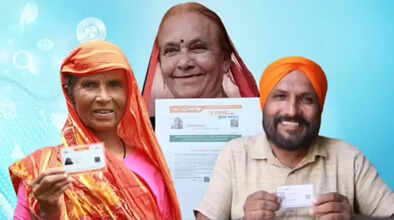Ayushman Card will now be accepted in OPDs, a major gift in UP. Treatment will be available in private hospitals..

If you live in Uttar Pradesh and have an Ayushman card, there's some good news for you. Uttar Pradesh has received a significant boost under this central government scheme. Now, hospitalization is not required to benefit from the Ayushman Bharat scheme. The Ayushman card will be accepted even in outpatient settings.
UP has become the first state to implement the OPD model. Currently, the Ayushman card is not accepted in outpatient settings under the Ayushman Bharat scheme in any other state. While inpatient treatment is cashless and free, you will have to pay fees in outpatient settings, and the Ayushman card will provide a discount. In the first phase, this facility will be available in 180 private hospitals. This system has been developed by the State Agency for Comprehensive Health and Integrated Services of Uttar Pradesh.
How to avail the benefits of the Ayushman Card in OPDs
Under the Pradhan Mantri Jan Arogya Yojana (PMJAY), you must call the helpline number 1800-1800-4444 to book an appointment at the hospital where you wish to see a doctor. You must provide the name of the hospital and the doctor. Your call will be connected directly to the hospital, and you will then receive a slot-based appointment. If a patient requires hospitalization after booking a doctor under the Ayushman Yojana, they will receive cashless treatment under the Ayushman Yojana. If no admission is required, they will receive a discount on OPD fees.
How much will you have to pay?
Under this scheme, approximately 20 out of 180 hospitals have no OPD fees for doctor visits. However, in other hospitals, you will have to pay 20 to 50 percent of the OPD fee. For example, if the doctor's fee at a hospital is ₹1,200, you can get a discount of up to ₹600.
What diseases can be treated?
In Uttar Pradesh, the Ayushman card allows you to see a doctor in five types of outpatient departments. General OPDs treat patients with common ailments, while specialist OPDs include heart, kidney, and gastroenterology. Elective OPDs are available for patients with knee replacement, pregnancy, and cataract problems. Follow-up OPDs are available for patients already undergoing treatment. Furthermore, patients can also seek treatment in the emergency OPD.
Disclaimer: This content has been sourced and edited from Navbharat Times. While we have made modifications for clarity and presentation, the original content belongs to its respective authors and website. We do not claim ownership of the content.

